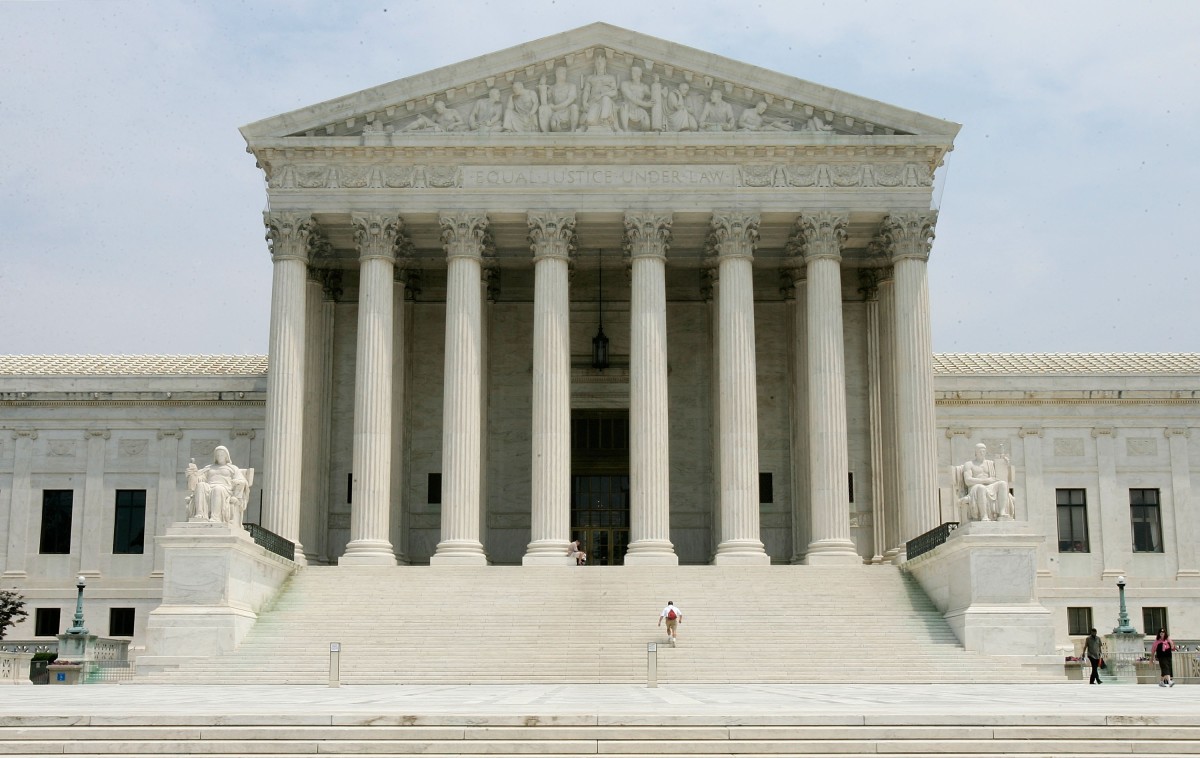Throughout the course of American history there have been many landmark supreme court cases that have shaped the future of this county. There are three cases that I am going to look at today Engel v. Vitale, United States v. Lopez and Citizens United v. FEC. Each of these rulings have had a long lasting effect on American and its government.
In 1962 there was a New York State law that required schools to start each day with the Pledge of Allegiance and a prayer to god. The law allowed for students abstain from the prayer. There was a parent, Steven I. Engel, who sued on behalf of his son. Engel made the case that the law was unconstitutional and violated the first amendment’s establishment clause. The case was first heard in the New York Court of Appeals, which upheld the constitutionality of the prayer. Then the governments of twenty two states submitted an amicus curiae to the Supreme Court trying to get the Supreme Court to uphold the ruling, while multiple Jewish groups did the same except they wanted the ruling to be overturned. The Supreme court ruled 6-1 in favor of Engel, stating that the purpose of the first amendment was to prevent government from interfering with religion, and that it was not appropriate for the government to endorse any specific belief system. In addition to this, Justice Douglas argued that the state giving money to religious schools or promoting any type of religion were also unconstitutional. The dissenting opinion, Justice Stewart, argued that the establishment clause in the First Amendment was to prevent the government from setting up a state sponsored church and it did not disallow all government involvement in religion and that being able to abstain from the prayer made it so there was no constitutional problem. This was a liberal decision from the Supreme Court. The Court had 6 Justices associated with the democratic party at the time. The amendment most relevant in the case is the first amendment. This amendment establishes that “Congress shall make no law respecting an establishment of religion, or prohibiting the free exercise thereof.” This case is directly about whether or not the New York Government made a law that did not adhere to this constitutional amendment. This ruling is still controversial and debated today which shows how important this topic is to Americans.
The second Supreme court case that I’m going to talk about is United States v. Lopez. A high school senior named Alfonso D. Lopez Jr. brought a gun into a school which violated the Gun-Free School Zones Act of 1990. The act prohibited handguns near school grounds. Lopez went on trial and was convicted. He appealed to the 5th circuit court of appeals, arguing that the Gun-Free School Zones Act was beyond Congress's right to legislate under the Commerce Clause of the constitution. The Commerce Clause was written to give the federal government some power over commerce in the states, something the Articles of Confederation failed to do. The 5th circuit court reversed his conviction. After that The United States government filed a petition for certiorari, and the Supreme Court accepted the case. In a 5-4 decision, the Court confirmed the 5th circuit court of appeals ruling. The main argument used by the government against Lopez was that having guns in school zones leads to violent crimes, which would raise insurance rates throughout the whole country and reduce travel interest to an area that might be deemed as unsafe. These things would have interstate consequences and would make it so the Gun-Free School Zones Act would fall under the interstate commerce part of the Commerce Clause. The Court decided that this would set a bad precedent, and that if Congress would be able to regulate something irrelevant to interstate commerce then it could regulate almost anything. The Court at the time was mostly filled with people appointed by Republican presidents and who were associated with the Republican Party, making this decision a conservative one. It’s also conservative in the fact that it limits government power. Chief Justice Breyer presented the main dissenting opinion. He argued that the Congress does have the ability to make this piece of legislation because evidence suggests that the threat of violent crime in a school zone lowers performance from the students, which would affect the job market significantly. This is a very significant case because it marks when the Supreme Court put a stop to increasing federal power. “To uphold the Government's contentions here, we would have to pile inference upon inference in a manner that would bid fair to convert congressional authority under the Commerce Clause to a general police power of the sort retained by the States. Admittedly, some of our prior cases have taken long steps down that road, giving great deference to congressional action. See supra, at 8. The broad language in these opinions has suggested the possibility of additional expansion, but we decline here to proceed any further. To do so would require us to conclude that the Constitution's enumeration of powers does not presuppose something not enumerated, cf. Gibbons v. Ogden, supra, at 195, and that there never will be a distinction between what is truly national and what is truly local, cf. Jones & Laughlin Steel, supra, at 30. This we are unwilling to do.” United States v. Lopez. (93-1260), 514 U.S. 549 (1995). This quote from the ruling is saying that the Supreme Court in the past has let Congress get away with stuff it shouldn’t and that now they are stopping that.
The third important case is Citizens United v. FEC. In this case a conservative non-profit organization called Citizens United wanted to release a film critical of the democratic presidential candidate Hillary Clinton. This violated the 2002 Bipartisan Campaign Reform Act. This act prohibited and labor union or cooperation from making an “electioneering communication” 30 days before a primary and 60 days before an election, or spending money advocating for one caditate or attacking another candidate at any time. In 2007 Citizens United filed a complaint for U.S. District Court for the District of Columbia, saying that the law was unconstitutional. The Court did not agree with them. Later, Citizens United made an appeal to the Supreme Court. The Supreme Court found that the 2002 Bipartisan Campaign Reform Act was in violation of freedom of speech in the first amendment. The dissenting opinion, led by Justice Stevens stated that the court's ruling "threatens to undermine the integrity of elected institutions across the Nation. The path it has taken to reach its outcome will, I fear, do damage to this institution." The court had a very even split across party lines, but overall it was more conservative than liberal due to most of the Justices being appointed by republican presidents. This case was very important because it allows companies and organizations to spend as much money as they want to back a particular political candidate, which makes it so bigger companies with more money can have a better chance at getting their candidate elected.
The US Supreme Court is very influential in pointing which road the country is going to go down. The Court makes it so that Congress can’t overstep its bounds, making sure that state governments don’t infringe upon our inalienable rights, and stopping the federal government from taking away some of the right to free speech from big companies.



Comments
Post a Comment